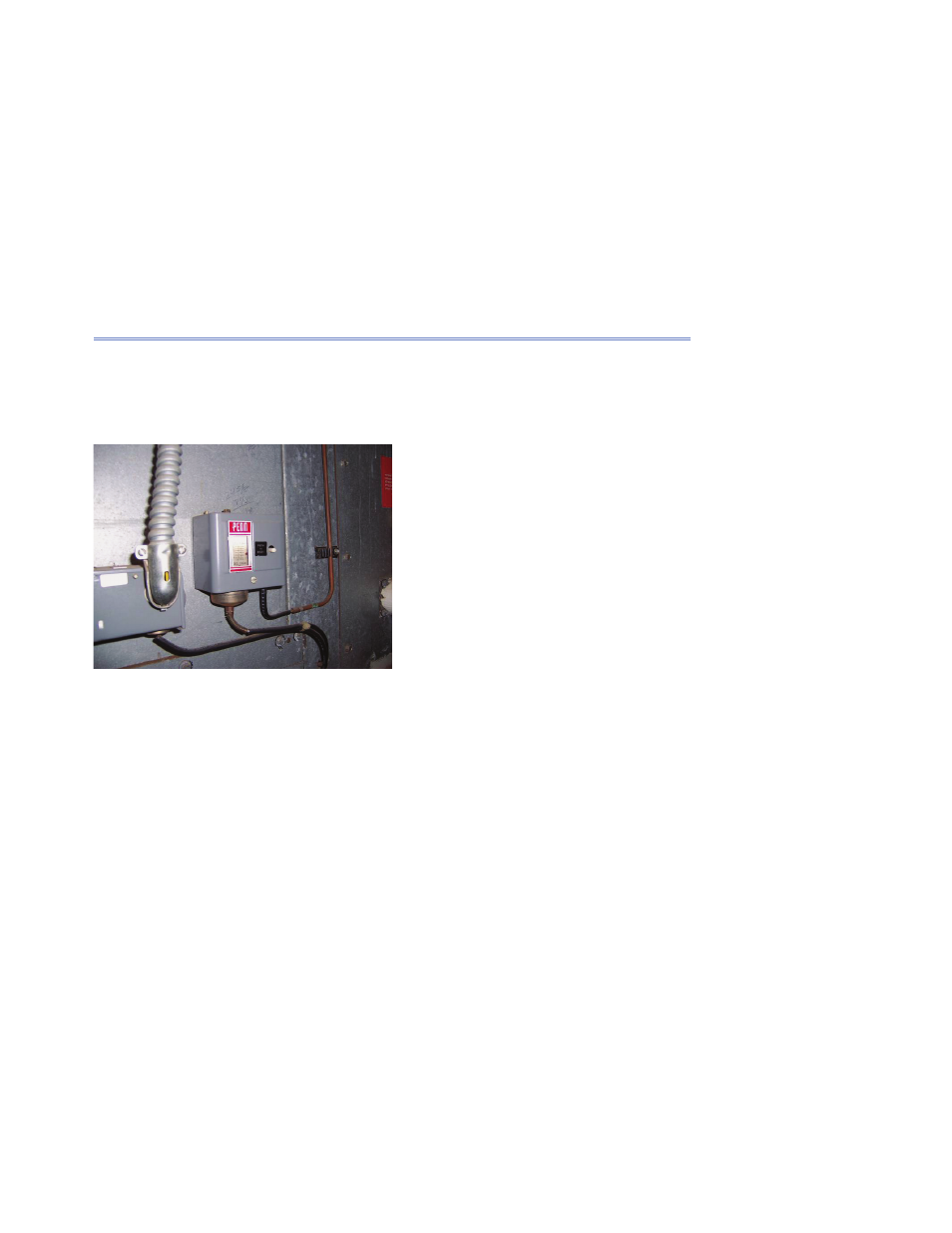Retrotec USACE User Manual
Page 169

Appendix D D39
fl ow occurs. This frosting of the coil can also occur with normal air condition-
ing direct expansion systems in which the air fl ow has been reduced and not
enough heat is removed from the coil surface, thereby allowing collected water
to freeze on it. The problem with coil frosting is that it increases the resistance
to air fl ow through the coil, which may cause an increase in fan motor energy
use. It will also reduce the cooling effectiveness of the coil, which may require
the refrigerant equipment to work harder. This could increase the energy use
of the refrigerant equipment.
D.2.5 Building Automation
D.2.5.1 Inoperable, Uncalibrated, or Poorly Adjusted Controls
(Ineffi ciency)
Figure D64. Controls on air handling unit.
Controls that malfunction to the point where they do not work, whose calibra-
tion has drifted so much that the wrong temperature or pressure is sensed, or
whose damper actuator adjustments are such that they will not close create
conditions that are uncomfortable and wasteful of energy. Inoperable controls
include frozen dampers, plugged air fl ow indicators, operators that do not
move, and burned-up microprocessors. Typically, any control system element
will eventually need replacement. HVAC controls (Figure D64) need to be
calibrated at least annually. Otherwise, a sensor will likely provide the wrong
information to the decision-making process in the control system. Inadequately
performing controls can waste a great deal of energy and cause poor building
indoor air quality. The amount of waste can be more than 50% of the normal
HVAC system use. A limiting factor is that space conditions will become so bad
that complaints by the occupants make someone come and look at the controls.
Often the result is that control operations are simply removed from the HVAC
system by maintenance personnel who have neither the time nor training to fi x
the controls correctly. Removing control programs may improve space condi-
tions, but energy waste will continue.
